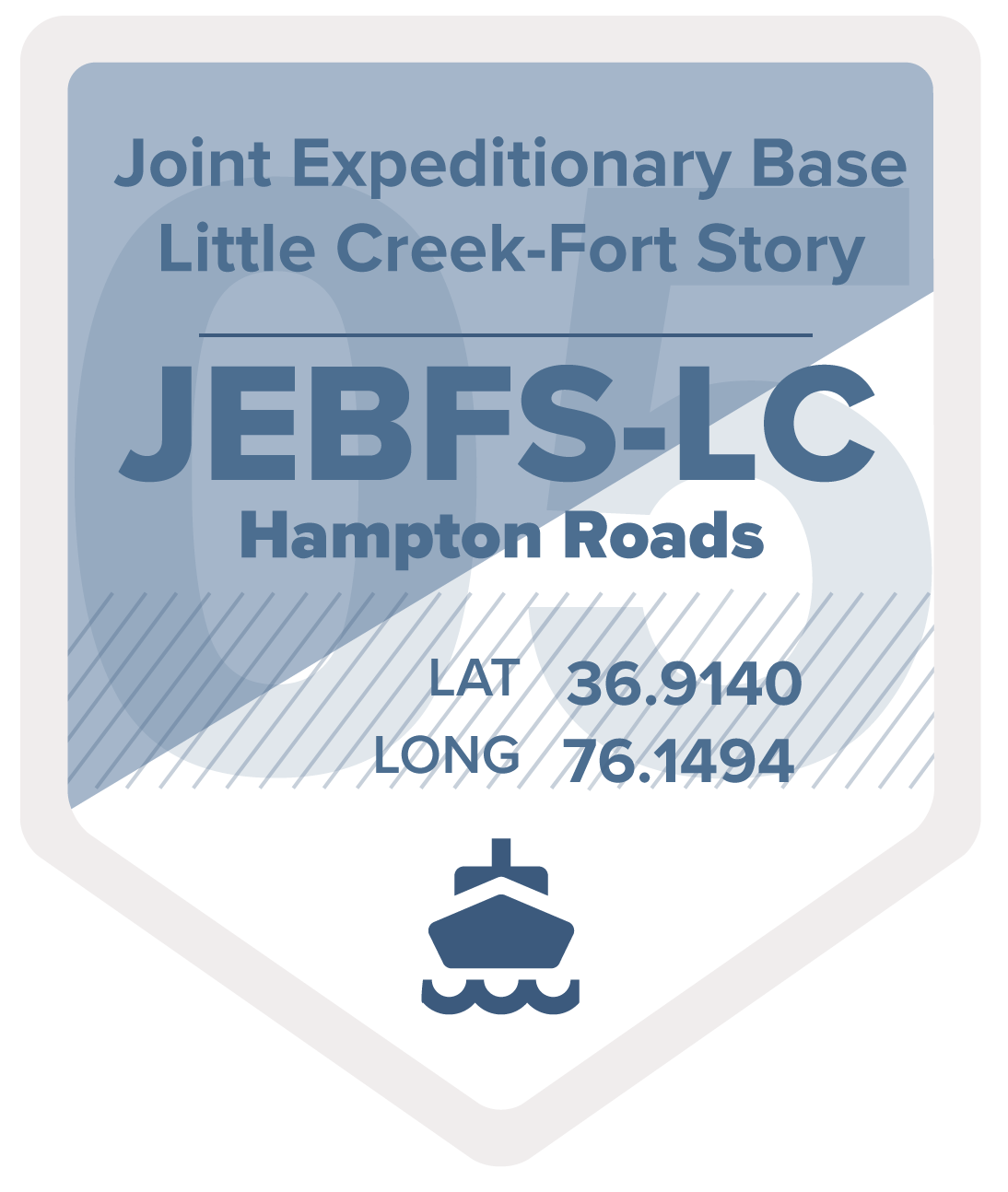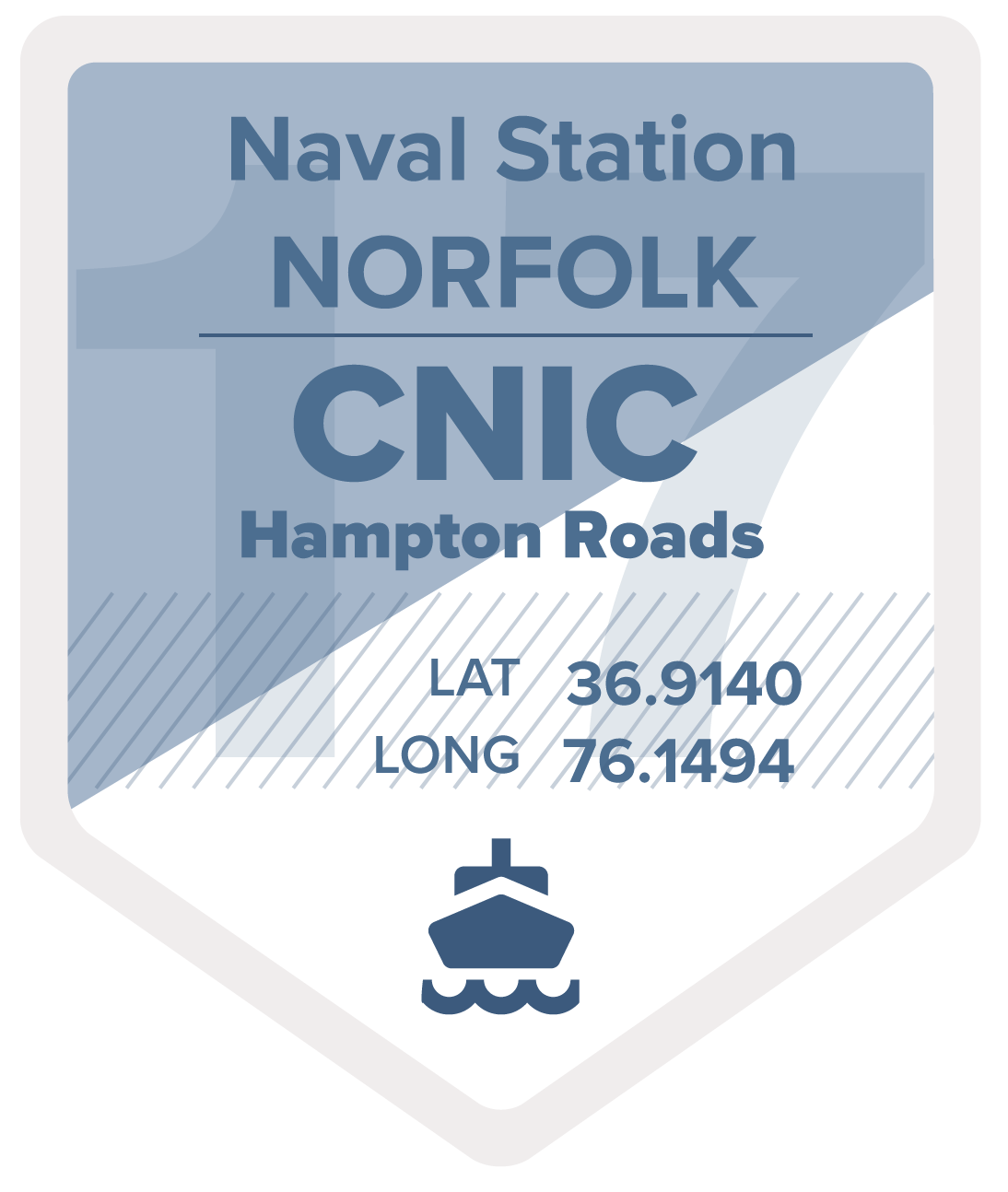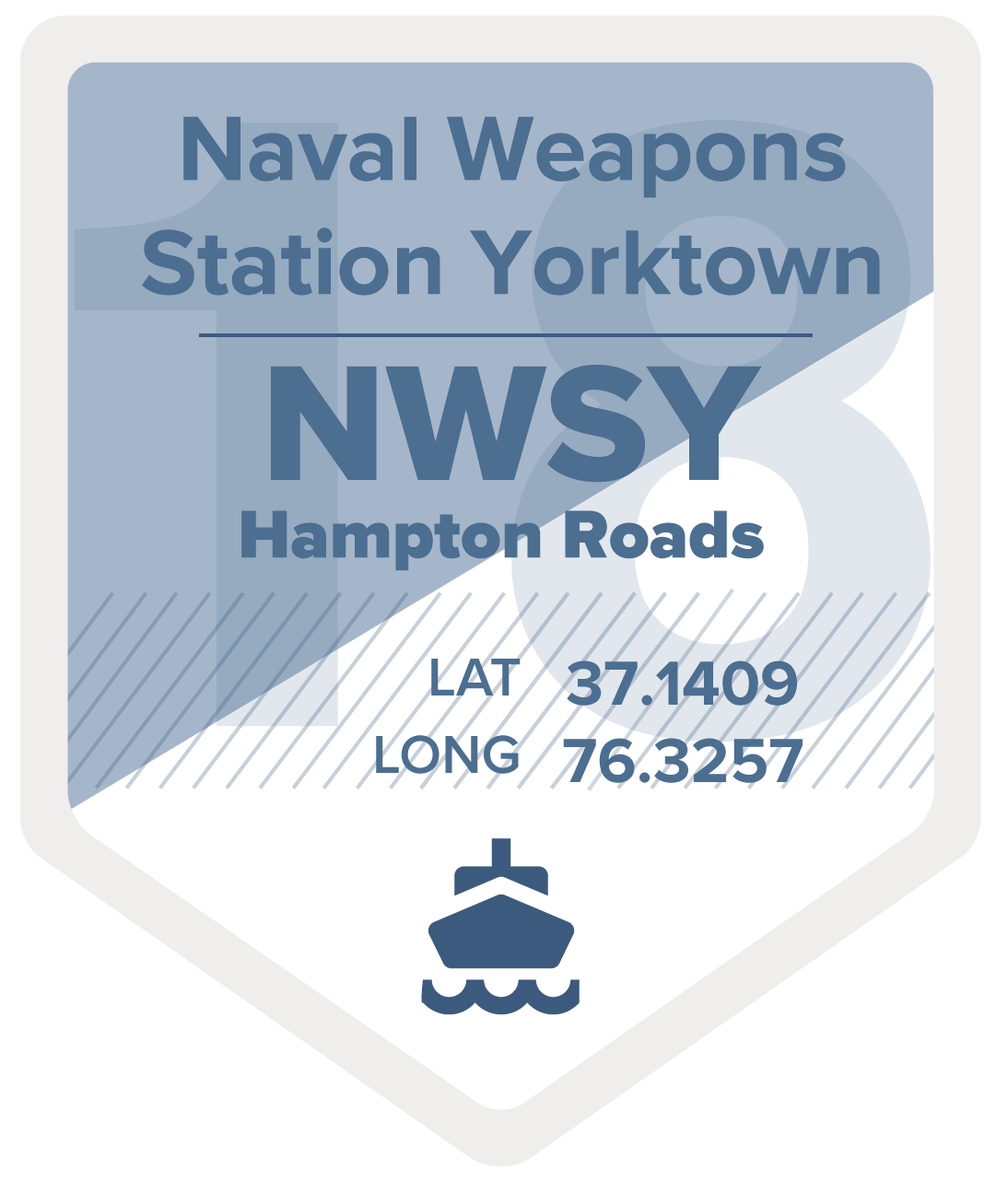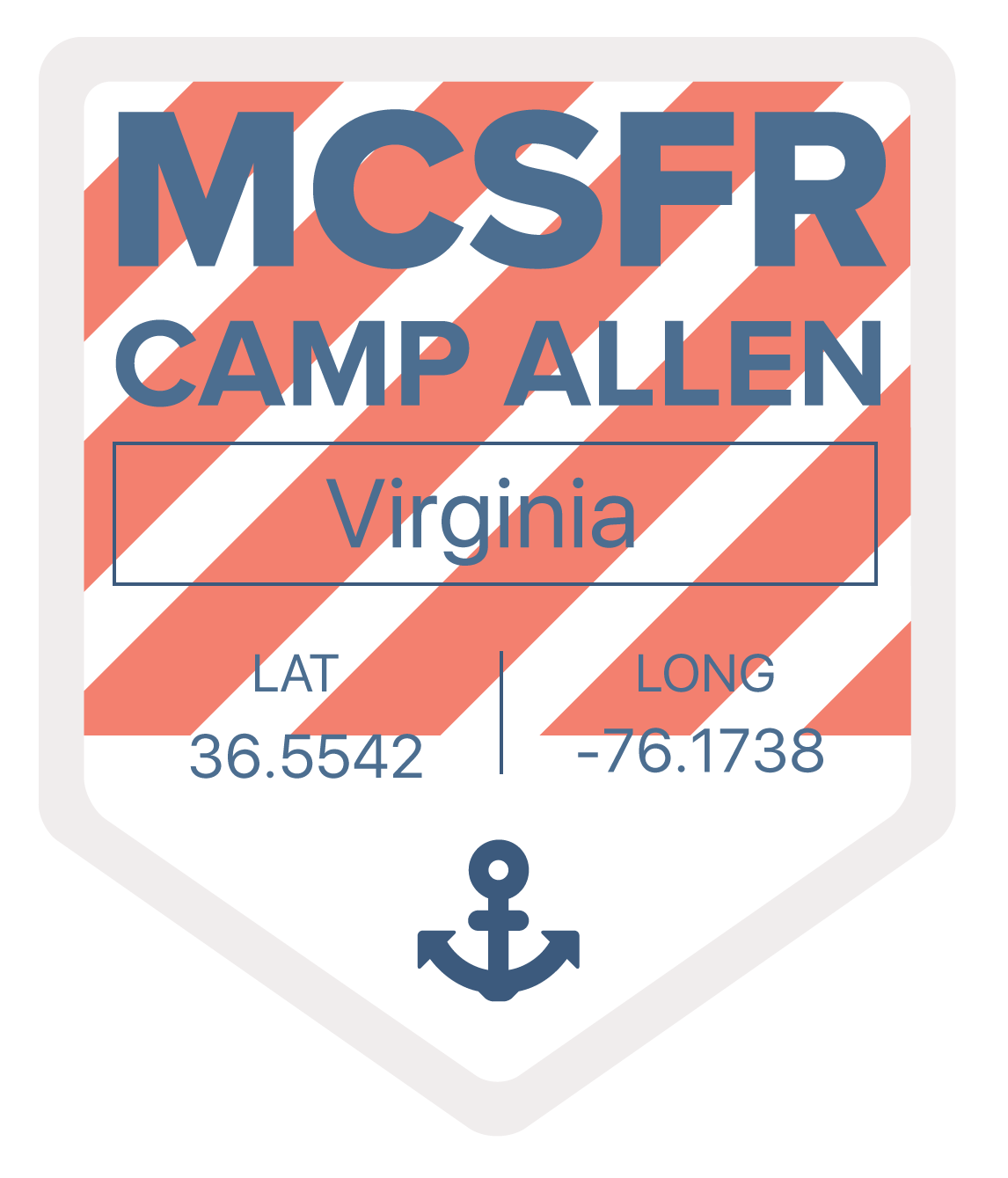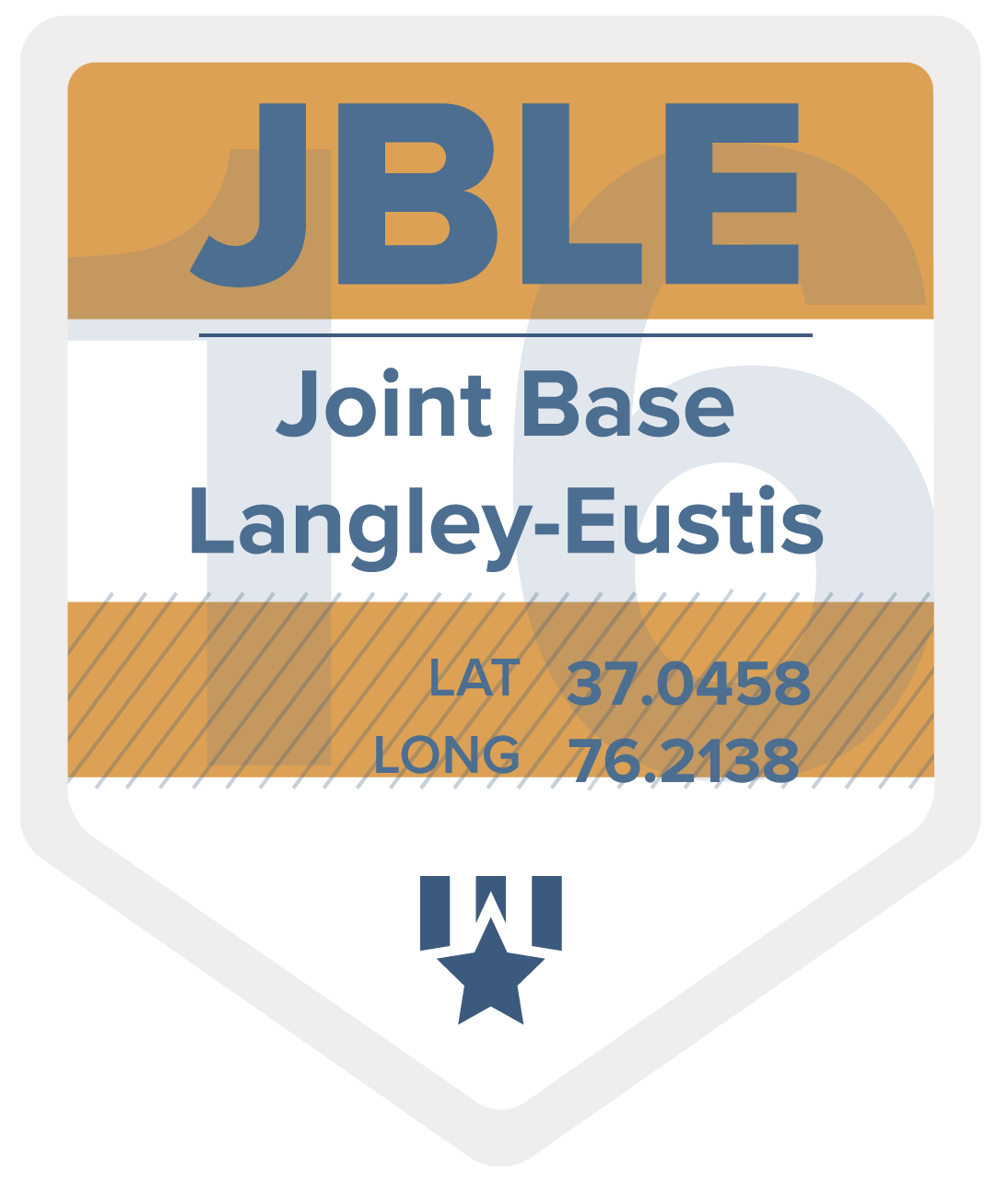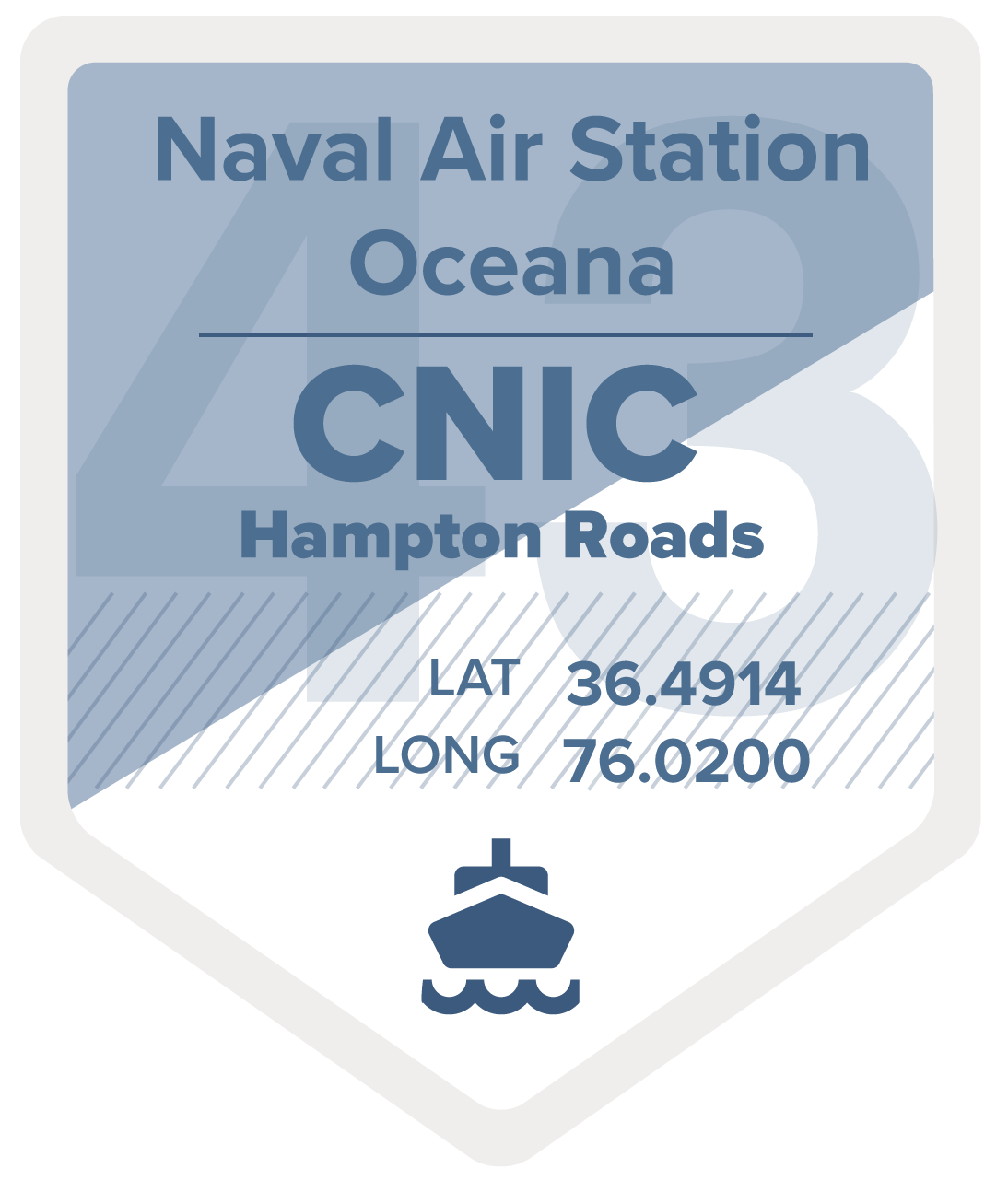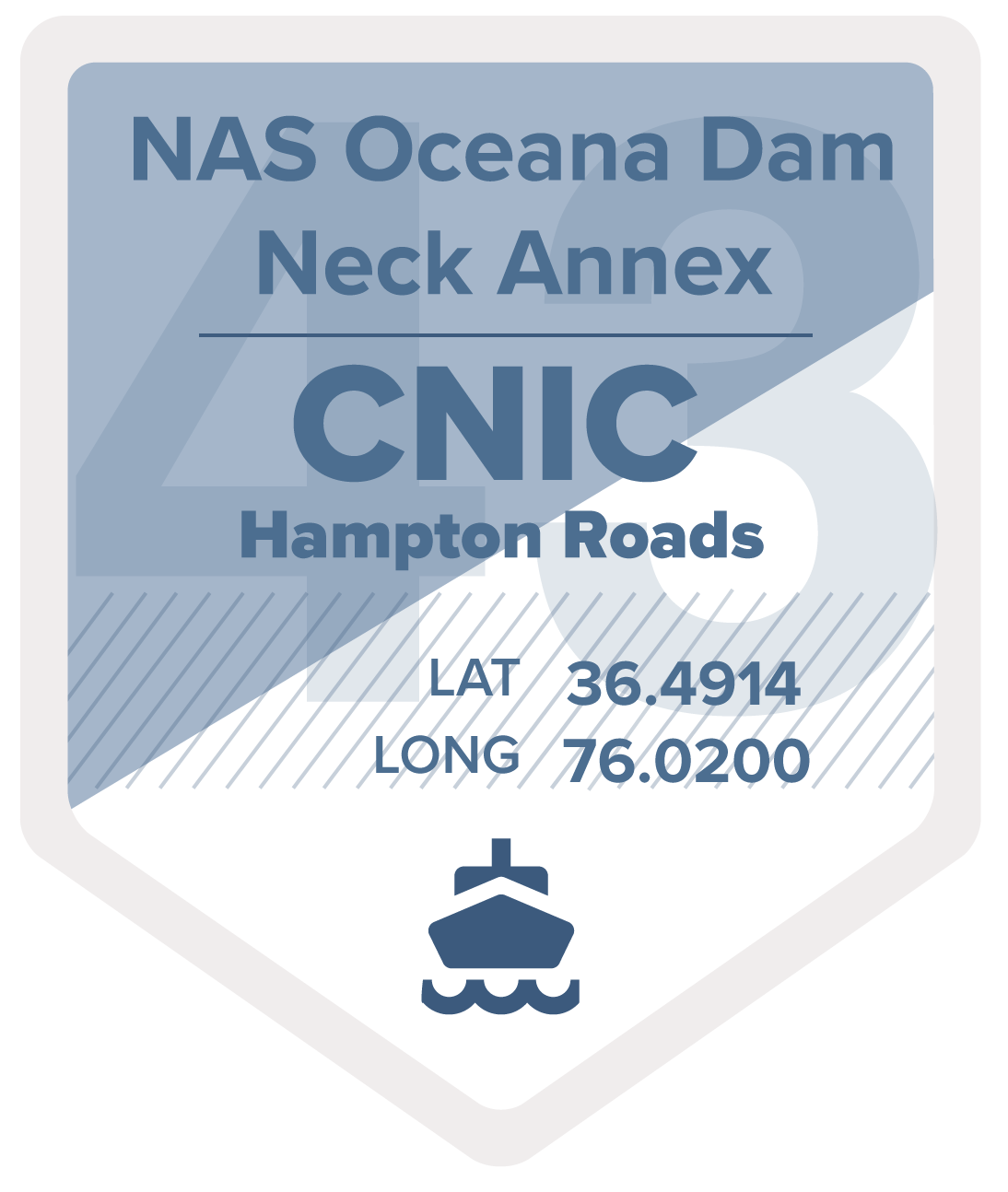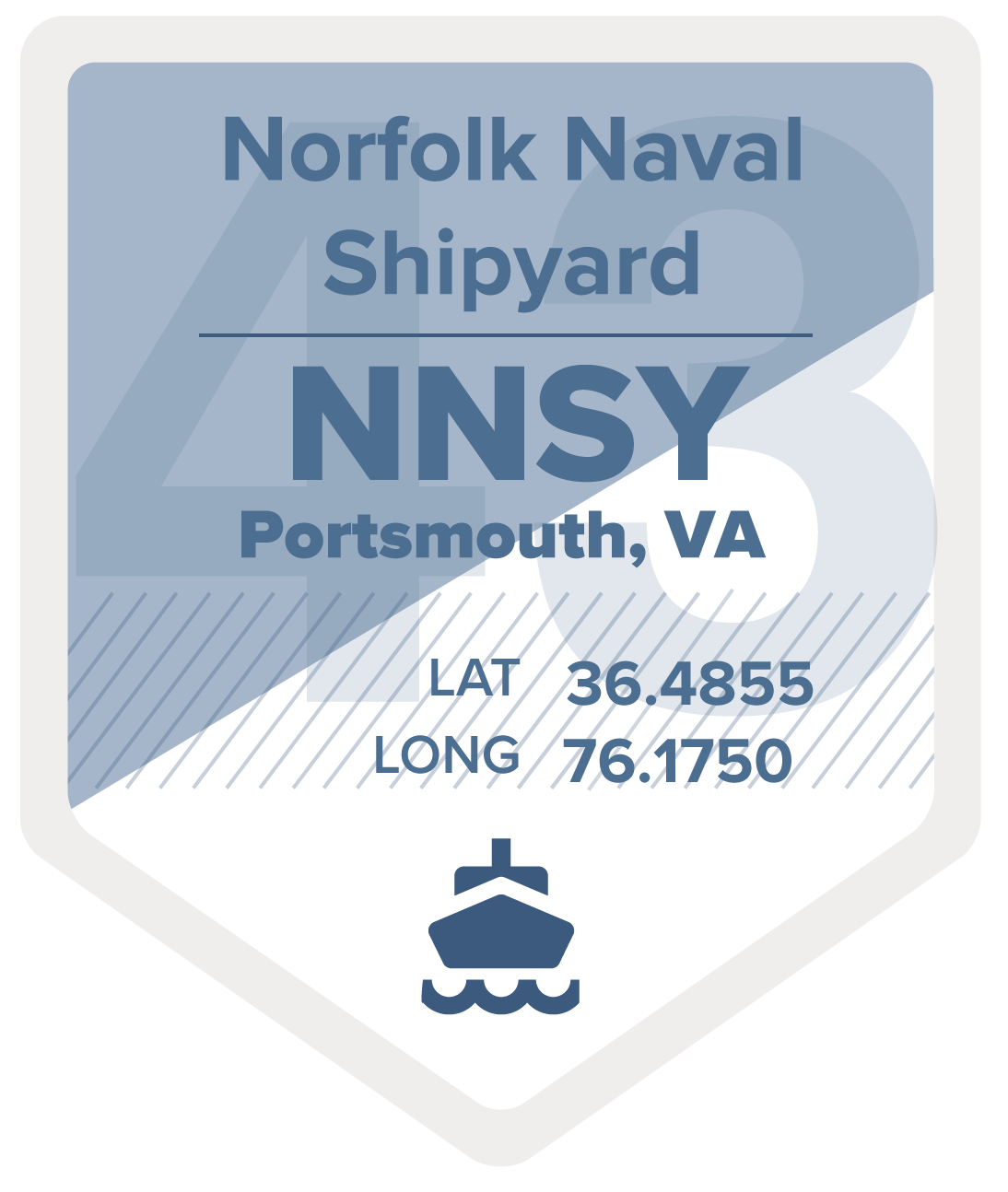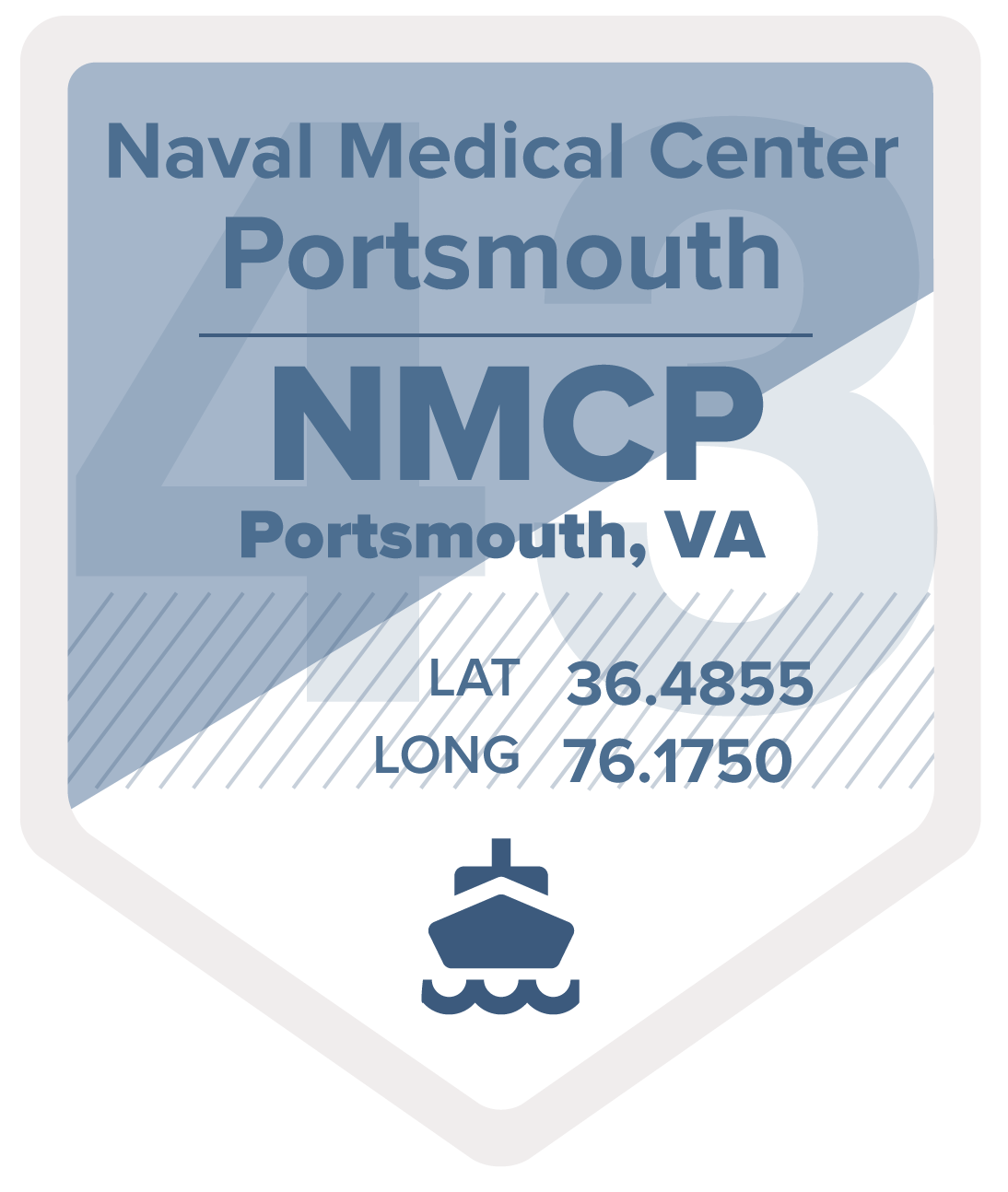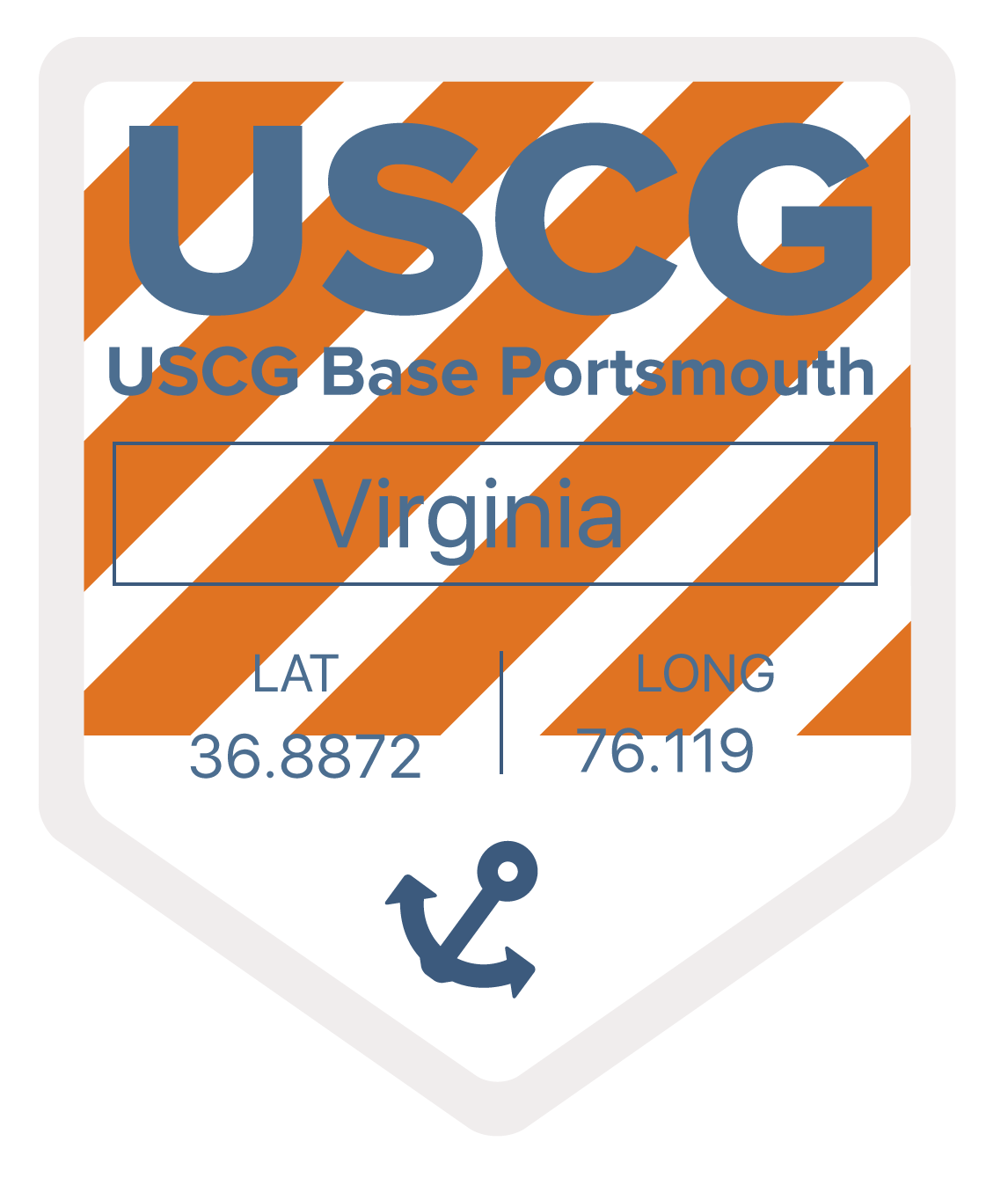About
If you are in the Navy, there are good odds that you will spend a portion of your career in Hampton Roads, VA. The “Seven City” area contains an unrivaled concentration of our nation’s military (over 100,000 active duty) and TEN installations across all branches of service. Naval Station Norfolk is the largest naval station in the world and sailors commonly spend more than one tour of duty here—and many make it their last assignment so they can homestead in the area.
Water permeates Hampton Roads. This huge natural harbor in northeastern Virginia is formed by the Elizabeth, James, and Nansemond Rivers (along with several smaller tributaries) which empty into the Chesapeake Bay. This complex system of deep waterways makes it a busy hub for commercial shipping, military transport, and all manner of leisure boating. The “Tidewater,” or land area, is split by the harbor into two regions: The Peninsula and The Southside.
Beautiful beaches, buzzing urban centers, perfectly preserved historic districts, and expansive wildlife sanctuaries provide something for everyone in Hampton Roads. History buffs enjoy Williamsburg and Yorktown and the coastal areas are inundated with tourists during the summer months for the food, festivals, and surfing. Yep, the East Coast has surf beaches! Employment opportunities in Norfolk are plentiful for career-minded spouses and there are several esteemed universities and community colleges for those looking to continue their education.
Positioned on the southern edge of the Mid-Atlantic states, Hampton Roads’ climate borrows from both extremes. Winters can see bone-chilling temps and snow storms, while summers are hot and sticky (though only three to four months long). We’d be remiss if we didn’t emphasize the heat and humidity in the summer, though. Anyone used to a good old “Southern Summer” should be unphased. But if you’re unfamiliar—brace yourself. It’s hot, humid, and the mosquitos can carry off small pets. The region is also flood-prone and seems to have a penchant for natural disasters. Flood insurance is a must, especially because many areas lie below sea-level.
Each city has a distinct personality, so it should be easy to find an area that fits your family’s style. Beach bums, foodies, and families love Virginia Beach. Active, young professionals flock to Norfolk for the downtown and Ghent neighborhoods. Those looking for a quiet pace with a historic flare look to Portsmouth. Those in search of a little more breathing room in the country head to the Western Branch and Deep Creek areas of Chesapeake.
Finding A Home
The first step in choosing where to live is to determine your priorities. There are three main values, if you will, to consider: Home Size and Price, Commute, and Schools. On each area page, we’ll break down some of the more popular communities for military families, and give you an overview of the trade-offs for each.
Pro tip: If you come armed with this info before chatting with a real estate agent, they’ll have an enormous leg up in helping you find a home quickly. Efficiency and knowledge are crucial in this hyper-competitive real estate market.
Size & Price
Hampton Roads offers a little bit of everything when it comes to home styles and price ranges. Oceanfront condos, modern highrises, traditional suburban split-levels, new construction, historic colonials, bungalows, and brownstones are all options and there tends to be a lot of available inventory. As is common in most metropolitan areas, you can usually come out a little ahead on BAH by buying instead of renting in Hampton Roads. This is definitely something you should consider if you plan to retire or spend a significant amount of time here. People fall in love with this region a lot, so keep that in mind when you’re doing your research. Also be sure to factor in things like flood insurance, taxes, and HOA’s if you’re looking to buy. A knowledgeable real estate agent can be a huge help in Hampton Roads, and we know some of the best!
Commute
There is no avoiding the bridges and tunnels, and this is a huge consideration for commuting. You will be stationed on either The Peninsula or The Southside, and you will more than likely want to live on the side where you work. Going across the river is costly (by way of time and tolls) and could make or break your experience here. Don’t worry, we’ll go over all this in detail, but just go ahead and acquaint yourself with the map.
Each area has much to offer, so there is really no reason to look too far away from your base for housing, especially not across a bridge-tunnel. Oh, and that’s not a typo. There are two “bridge-tunnels” that cross from The Peninsula to The Southside. They are half-bridge, half-tunnel and the bane of commuting in the Tidewater. Traffic jams, accidents, and congestion can make going over (and through) them extremely unpredictable. If you choose to live in a place where you will need cross a river, be sure to factor tolls into your annual expenses. All of the bridges have tolls or will in the near future, and can cost up to $1,500 a year for daily drivers!
Schools
Most service members without children seek to be as close to the water as possible. Those with children often broaden their search criteria to include communities with highly rated schools in affordable neighborhoods. We use data from GreatSchools.org here at MILLIE, but that doesn’t always show the entire picture. Look at the school or district’s report card from the Virginia Department of Education. Interview potential schools. Talk to the base or regional School Liaison Officer. Take into account all of the factors that could influence test scores, but aren’t necessarily reflective of the quality of education (ie. a high percentage of students whose primary language isn’t English). There are several options when it comes to education models in Virginia, which we’ve outlined below. We’ve also identified some schools in each area that military families highly recommend.
Traditional Public Schools
Traditional Public Schools are operated by the Virginia Department of Education. Students that reside within a school zone must attend their neighborhood school. Out-of-district transfers are an option, though only under certain circumstances (parent employment at another school, child care, or if your child has been the victim of a crime at their neighborhood school). Not all schools accept transfers, so pay attention to your school zone and don’t rely on “choice-ing” into another neighborhood school.
Magnet Schools
A magnet school is a school in the local public school system that operates under the same oversight and school board as public schools. Magnet schools typically have a specific focus, such as STEM (Science, Technology, Engineering, and Math), the arts, or vocational paths. There are many competitive magnets located throughout Hampton Roads. Magnet schools typically only accept a small percentage of applicants, so lotteries are common. But living within the school’s assigned district can help.
Governor’s Schools
There are two highly competitive Governor’s Schools in Hampton Roads: the Governor’s School for the Arts in Norfolk (serving the Southside area cities), and the New Horizons Governor’s School for Science & Technology in Hampton (serving Peninsula area cities). These aren’t just summer residential programs, but traditional academic year high schools with full immersion programs and incredible opportunities! They’re tough programs to get into and are highly sought after by intellectually and/or artistically gifted students.
Charter Schools
Charter schools are public schools that have private oversight and come in a variety of educational models. While some states have hundreds to choose from, Virginia only has a handful. There are two charter schools in Hampton Roads.
Private Schools
As always, you may opt for a private school education if the neighborhood school options don’t excite you. This is a pricey option, but viable for some. Private schools can either be religious based or nonsectarian, and are a popular choice for preschool.

